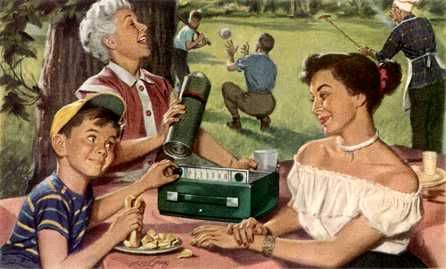An article called “Why Do We Let Them Dress Like That?” from Crosswalk.com caught my attention this week. The opening paragraph really resonated with me:
How do 12–13 year-old girls dress for a party? In “mini-dresses, perilously high heels, and glittery, dangling earrings, their eyes heavily shadowed in black-pearl and jade,” says Mrs. Jennifer Moses in a recent Wall Street Journal article. “They look like a flock of tropical birds.” Then she asked the question many are asking, “Why do so many of us not only permit our teenage daughters to dress like this—like prostitutes, if we’re being honest with ourselves—but pay for them to do it with our AmEx cards?”
 |
| thisismike | stock.xchng not my daughter, but a beautiful teen nonetheless |
I must say that I have often wondered what what some parents are thinking when I see how many tween and teen girls are dressing these days. Having read both the Crosswalk and Wall Street Journal articles (both titled “Why Do We Let Them Dress Like That”), I agree that it’s important to address what has become an alarming trend among young girls, and to address it at the CORE of the issue.
I really appreciate the honesty with which Jennifer Moses writes in the Journal – she’s not trying to make excuses or justify things. No sugar coating here:
What teenage girl doesn’t want to be attractive, sought-after and popular?…And what mom doesn’t want to help that cause? In my own case, when I see my daughter in drop-dead gorgeous mode, I experience something akin to a thrill—especially since I myself am somewhat past the age to turn heads.
Mrs. Moses boils it mostly down to moms who are living vicariously through their young daughters and have slipped into denial about what is actually being communicated to the girls and by the girls when they are allowed to dress provocatively and older than their years.
Dr. Karen Gushta of Coral Ridge Ministries, in the Crosswalk article, stresses the impact society has on the sexualization of girls, implicating the school system (or at least the culture in schools) as a huge purveyor of sexual messages. She asserts that:
…homeschooling provides the best cultural medium for parents to protect their children from the toxic effects of a media and entertainment culture that produces hyper-sexualized and often obscene materials.
For Dr. Gushta, the issue of sexualization stems from people stepping away from God’s design for life and tossing aside moral virtue.
When Christians seek holiness, we will not let our daughters dress like prostitutes, and we will be diligent in teaching them about purity. For what truly makes a young women attractive is, as the Apostle Peter described in his first letter, “the incorruptible beauty of a gentle and quiet spirit, which is very precious in the sight of God.”
I think BOTH Mrs. Moses and Dr. Gushta have it right on this one.
(By the way, Dr. Gushta’s article wasn’t saying that Mrs. Moses points were wrong; I believe what Dr Gushta was saying was that the points made in the Journal article were not the whole story.)
I agree with Dr. Gushta – when we begin to do things our own way, and not God’s way, things seldom go well. I can say that having spent the first half of my life doing things my own way, and having baggage and hurts to deal with as a result. I’ve learned that God’s laws are in place not to squash us or keep us from having fun, but because they are guidelines to tell us about how we’ve been made to function, and how we live best.
Even Mrs. Moses shares a statement made by one of her friends, “If I could do it again, I wouldn’t even have slept with my own husband before marriage. Sex is the most powerful thing there is, and our generation, what did we know?” God knows that sex is powerful, and that’s why He designed it to be something shared in marriage, between one man and one woman, not as a prohibition, but as an indication of the importance and power it has.
I’m in a slightly different camp than Dr. Gushta when it comes to public schools vs. home-schools. I’ve done both myself. There are pros and cons to both.
However, I do feel strongly that our whole job as parents isn’t ONLY to PROTECT our children from the culture, but also to PREPARE our children for that culture. That requires possibly more diligence on our part.
Protection means we identify and remove the negative influences altogether (and it sometimes means poorly educating our children about those things because ‘we just don’t talk about them’).
Preparation means that we identify the negative influences, possibly remove those influences that are unsafe, and engage the influences with our children in a manner that teaches what we believe and teaches them what to do with the culture that they are inevitably going to experience. We must gauge the timing of these things as well, based on what’s happening around our children as well as on each child’s individual readiness to address the subject. But we feel like NOT addressing the influences of culture isn’t an option.
My daughter, Sweetheart, is 11 years old. With her, and her younger brothers, we’ve chosen to remove some influences and engage others.
While Sweetheart attends public school, a choice we made very intentionally, her selections for music, tv, movies and fashion are limited. We don’t have cable. We’ve probably never watched a full episode of Hannah Montana, never seen any of the High School Musicals (as examples), but just about have all of Taylor Swift’s music, The Court Jester movie, and The Blue Planet videos memorized.
When buying her clothes, I take her shopping with me, but we talk about our choices, and why we picked this or didn’t pick that. We see the models on the magazines in the stores or at the doctor’s office, and have countered with the Dove Evolution video and other evidence for how the fashion industry photoshops and falsifies images. These are just a few things we’ve done to engage the influences that our daughter is bombarded with every day.
With opposite sex siblings in the house so close in age, sexuality and anatomy has been part of ongoing conversations since they were very young. Sweetheart chose, with our consultation, NOT to participate in this year’s sex-ed modules in health after her classmates were so goofy about it in grade 5. She says that using the right words for body parts isn’t icky, and sex isn’t gross (it’s a beautiful gift from God), but all her friends make it out to be yucky because they are embarrassed. She was uncomfortable with their embarrassment and their negative perspective on the whole thing, because it’s NOT negative to her, and she’s told them as much. (I’ve told her that we’re the weird ones here, but we’re OK with that!) The lack of honest education that her friends have about sex and sexuality means that they really don’t understand the implications of provocative dressing, promiscuity, etc. They know about the actions involved in sex, and maybe feel some of the scandal and thrill involved in the risk of sex, but not about the emotions or appropriateness of it – and that’s dangerous for everyone involved.
Modesty has always been the policy in our home, and yet my daughter and I still love to dress in pretty dresses and skirts and nice shoes and whatever. We can be drop-dead gorgeous while being completely modest. Even the brothers are speaking out about modesty with their classmates. BudBud said to a 9 year old bikini clad friend at a recent swim party, “I have a t-shirt you can borrow if you’d like to show less of your body.” MrCutie (9 years old) told one of his best girl-friends that he wished she’d wear a longer shirt, “Because every time you swing from the monkey bars your shirt goes up and I have to turn my head away.”
Because we’ve engaged these issues with our kiddos, they are confident and able to address the issues with their friends.
I agree with Mrs. Moses, as well. Many in our generation are conflicted about our pasts and not at home in our bodies. Moms need to learn how to be comfortable in their own skin, to promote modesty without frumpiness, to be confident and yes even sexy without being provocative or inappropriate. We need to let our daughters know where their true value comes, and it’s not in baring their bodies, turning heads, or getting the boys’ attention. We need to be honest with ourselves, our friends, and our daughters about mistakes that we’ve made, and about how we were fooled to think that sex was our ticket to a man’s heart when in fact it was a ticket to many of our own heartbreaks. (I’m talking to myself here, too!)
And more than that, we need to let our little girls be little!
When I was in High School, it was a HUGE deal to get a formal dress for Prom. And Prom was ONLY for Grade 11 and 12 students. It was sort of a ‘coming of age’ to be able to get all decked out and gorgeous in a totally spectacular way. (In Canada, at least around here, it’s Grad and ONLY Grade 12s get totally dolled up!)
NOW, they are having formal events for Grade 5 graduation (going from elementary school to middle school). WHY? Because girls LOVE to get dressed up and be beautiful, and boys love to look at beautiful girls. But why do we need to go all out formal for Grade 5? 10 and 11-year olds in strapless gowns? Yes, they are gorgeous, and we want our daughters to have those opportunities to feel and be drop-dead gorgeous. But is it appropriate for their current emotional maturity or for the precedence it sets for years to come?
I really feel like it’s absolutely worth celebrating milestones with your children – in age-appropriate ways!
If our young girls get to start with formal events at age 10, how high has the bar been set for graduation from high school or university? What about the day when you want her to be the center of attention and the most beautiful girl in the room – her wedding day? To what lengths are you going to have to go with each additional milestone when you are already starting at the moon!?
Another quote from the Journal article discusses this:
And sometimes the moms and dads are out there contributing to it, shopping with them, throwing them parties at clubs. It’s almost like they’re saying, ‘Look how hot my daughter is.'” But why? “I think it’s a bonding thing,” she said. “It starts with the mommy-daughter manicure and goes on from there.”
OK, mommies – let’s be frank. Just because we think back to our girlhood and wish that someone would have been there to lavish on us and make us feel like princesses does NOT mean that we have to go gaga and get ridiculous with our little girls.
 |
| thisismike | stock.xchng Trying to be grown up, but still ‘little girls’. (again, not my daughter, but the pic says a lot!) |
Yes, do fun “girl things” together! Bonding is important! Dress-up is awesome! Pretty dresses are fun! Fingernail polish is cute! But baby steps are REALLY OK with our girls. They want to take huge giant leaps in growing up, and it is OK to help slow them down. As their bodies develop, some faster than others, let’s help them to remember that even if they look 16 they are still only 13 and not ready to handle all the things that 16 year olds do. When they are 16, affirm their beauty and fashion sense without being a total square or letting them dress like they are 25 (it can be done!). When they are 25, making their own money, they can dress how they want. LOL!
Don’t push them forward too fast, either. Giving your 8 year old a box full of real make-up for her birthday and allowing her to wear it every day is, in my opinion, pushing the limits. Letting your 11 year old wear eyeliner and mascara is a bit excessive. And buying the shortest, fluffiest, strapless cocktail dress for your daughter to wear to the Grade 8 graduation party is taking her another step further forward than she’s emotionally or physically ready to handle.
Let’s be realistic with our girls: every day life isn’t about glitz and glam and sexiness and being a princess all the time. Don’t set your daughter up for failure – for failure with herself when she can’t keep up with those expectations, or for failure in relationships because she’s bared it all before it’s appropriate, with nothing left to give.
Our job as moms is to be MOM, not to be friend, and NOT to relive all the things we wish had happened to us through our daughters.
(By the way – Dad’s have a huge role to play in this as well… but I won’t go into that now…)
Mrs. Jones wraps her article up this way:
But it’s easy for parents to slip into denial. We wouldn’t dream of dropping our daughters off at college and saying: “Study hard and floss every night, honey—and for heaven’s sake, get laid!” But that’s essentially what we’re saying by allowing them to dress the way they do while they’re still living under our own roofs.
She’s right. Is that the message you want to be communicating to your daughter, and to her friends and boyfriends?
Remember: 90% or more of what your daughter wears is bought with your money. By allowing her to use her allowance (which really is YOUR money) to buy revealing clothes, jewelry, make-up and perfumes that are well beyond her years (or perhaps buying those things for her yourselves) you’re giving our stamp of approval on those things. We do have a way to make our voice heard – by the closing of our wallets, if nothing else. Hopefully there are other conversations going on as well, but you can always take it to the bottom line of the hard dollar if nothing else is working.
Before we know it our little girls will be grown and out on their own, sooner than we’d like. They are racing to grow up and act and dress more like adults when they really aren’t ready to. While they are with us, in our homes, let’s love them, let them know they are beautiful, and let them be little as long as we can!








Well said! I do believe I am a little less conservative than you BUT I totally agree that girls should not be dressing like grown women. We need to protect our kids for certain. That being said I think it is important we teach them not to be judgmental of how others dress as well. That is their (or their parents' choice), not ours.
This is a great post!!
Great post. As parents we DO have a say in how our girls approach their image and dress and life in general and we need to own that and not apologize for preserving their childhood when it is so fleeting anyway.
I agree with Tara as well, choosing to not judge others is a huge lesson and practice that is also valuable 🙂
This has always been a topic at our house, with 4 girls!! We believe in modesty and our girls are all on board with it too. I have both homeschooled and public schooled and I do believe that it doesn't matter where you go. We can't hide our girls from the world and it is better for them to learn at home, and from examples, what is good or not. Good Post and great topic!!
Thanks for posting this,,, you have no idea how close it is to the way that I was brought up – VERY Christian,, everything in my life was very modest… Looking back, I see how hard my mother worked at molding me and although it may have taken a few extra years to get to the point where she wanted me,,, it worked. Sure, I'm not perfect, but I do see how hard my Mom worked at it.
I hope that I can bring those same values to my daughter in every part of her life, but it is REALLY hard in today's society, because we have things coming at us at so many different directions.
🙂
Great post!
You raise a lot of good points! I'll have to come back and comment again when I have more time. Yet, I wanted to quickly say that this is a great post, and your sons' comments made me smile. What a gentleman!!
Oh my gosh this resonates all that I believe! Shared it on FB too. Hoping my nieces will read up, thanks!
Great job cuz! As a mom with a daughter this is a great post and I agree; completely shielding our kids can do more harm than kid. I block certain things from my daughter buts others we use as points of discussion. She reached her own conclusions (somewhat guided though) about what is beauty, what is appropriate, what is healthy, and other topics relevant to her stage of development. Parents need to be parents and take more responsibility for their children and their development. You can make them feel beautiful, wanted, and validated without turning them into sexpots. Let them be kids. They have plenty of time to be adults (of course my daughter will never be a hoochie or this country mom will go way country. My daughter has been warned ;-D).
Well written and wonderful article! I am a Mom of a 12 1/2 year old daughter and I certainly appreciate and agree with your article. As far as clothing choices go she is still into Jeans and t-shirts and thinks the "girly girls" (her term) that dress inappropriately are not girls she wants to be around or look like. As far as makeup goes I let her wear lip gloss and mascara, but so far she only chooses to wear lip gloss on special occasions ~ she hasn't quite mastered the "art" of applying mascara and I've told her that in order to wear it, she has to know how to put it on herself and I have to approve the end results!
I love reading your blog, keep the great articles coming!
(¯`v´¯).~KerrieLynn
`•.¸.•´ ¸.•´¸.•´¨) ¸.•¨)
(¸.•´ (¸.•´ .•´¸¸.•¨¯`•- ¸¸.•*"Ƹ̵̡Ӝ̵̨̄Ʒ"*•.¸¸
Blog: ღKLsCupboard
Facebook: KLs Cupboard
Twitter: KLs Cupboard
I completley agree! Well said!! I just stumbled it! If you would like to visit me please check out this link. Thanks! http://livingonloveandcents.com/2011/04/14/add-personality-to-your-laundry-room-for-less-than-5/
Great post – thanks for sharing this. I have a 4 year old daughter and I worry about her as she gets older. We do homeschool, although I'm not sure how far up we will go, but regardless – it's a scary world these days and it takes more than a little wisdom to see them safely through the growing up years. It's great to see other moms with a good perspective! I stumbled you – hope you'll visit me too! 🙂
Musings From a SAHM
Have a great day!
~Erika
I'm a big fan of "if x friend jumped off a bridge, I still wouldn't let you do it, because I'm your mother" I'm lucky that my teenager is anti-dresses right now and her idea of dressed up is sparkly jeans, but I know that will change in the next few years…
I stumbled your post, please consider visiting and stumbling Autism through the Eyes of a Special Needs Teacher
your daughter is beautiful =)
but you now have a new follower, could you please follow back
http://christy1986p.blogspot.com/
I've stumbled this! If you have time I would love a stumble back! http://www.survivingateacherssalary.com/2011/04/make-your-own-ladybug-pinata.html
Excellent post…My 2 girls (age 13 and 14) just bought high heels for a wedding reception… and they look so funny in them…their dresses are knee length. I'm hoping they will see how awkward they look when walking and change their minds…lol
Stumbled your post.
Becky Jane
http://myelevenreasons.blogspot.com/
Excellent! Having just gone shopping for jeans with my 16 y/o DD this past week, I am so frustrated! And she, bless her heart, doesn't really understand why certain cuts of jeans are more objectionable than others, even though they all feel like they fit to her. At least she still follows my advice, even if it is her money.
You have a lot of great points. I think it's a shame such provacative clothing is even MADE for young girls!
Stumbled your post, if you could stumble mine http://www.darcyandbrian.com/?p=2016 I'd appreciate it!
I stumbled this. My post is http://booksyourkidswilllove.blogspot.com/2011/04/reading-tools-and-tips-for-pre-school.html
Stumbled! 🙂
http://somecallitnatural.blogspot.com/2011/03/flip-flop-exchange-for-adults-and-kids.html
I agree. It's all about celebrating milestones in age appropraite ways. Earning the right to wear make-up itself should be a milestone, at the appropriate age. Which I don't believe to be 10 or 11.
I stumbled you. Here's my post:
http://www.mapleleafmommy.com/2011/04/review-envirosax-bags-from-giving-gifts.html
I really takes just one word "NO". Then a whole bunch of discussion behind that.
Thanks for joining us for Stumble Tumble Tuesday! Please come again next week! Stumbled you, please stumble me back! http://stillblondeafteralltheseyears.com/2011/04/stop-dont-use-networked-blogs-rss-graffiti-or-any-other-feed-aggregator-to-post-on-facebook/
The Chief Blonde